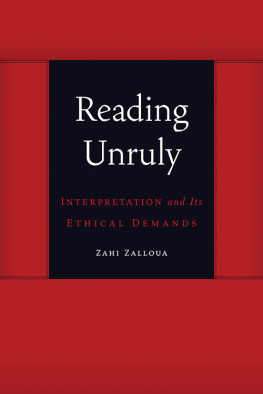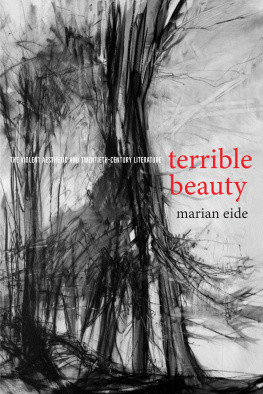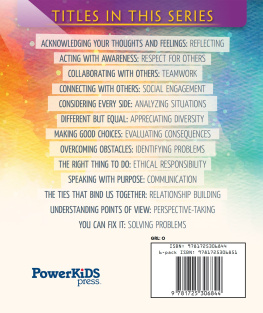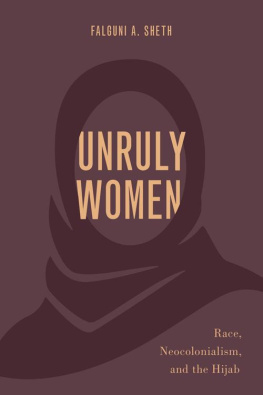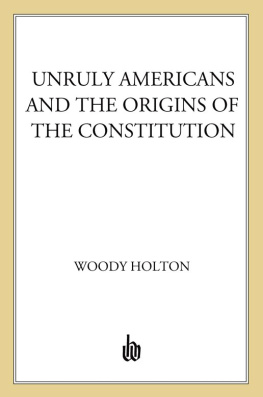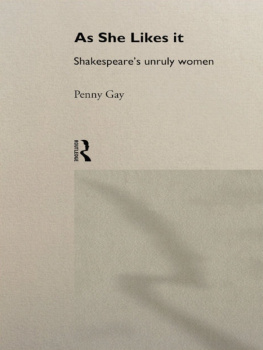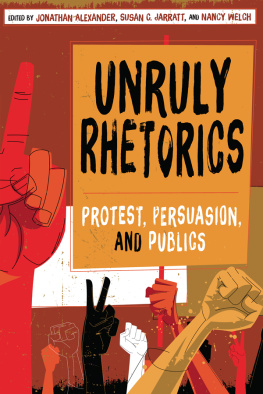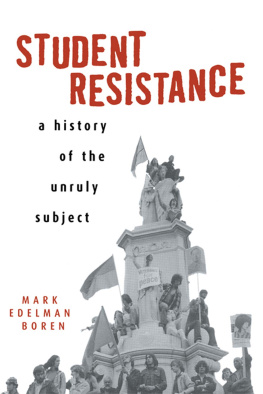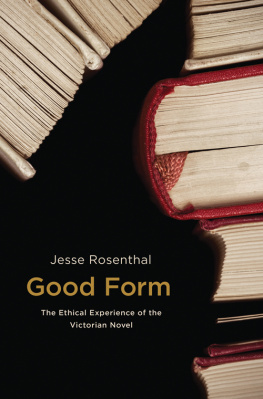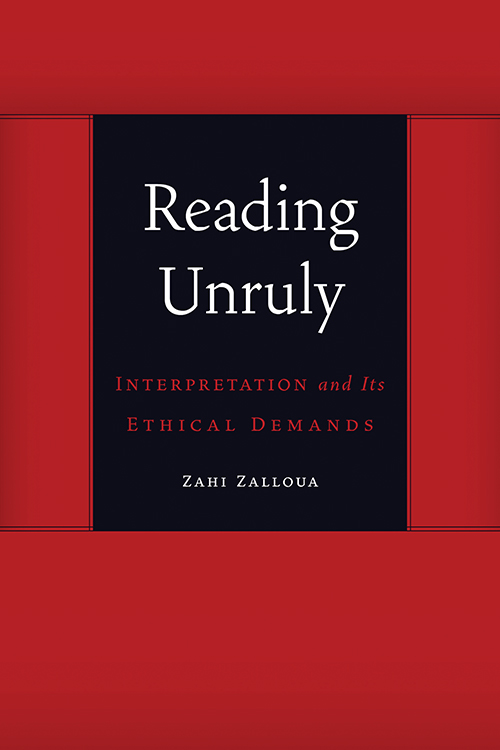
This is a work of fundamental importance. As Zalloua points out, questions of the ethics of reading are central to contemporary theoretical concerns.... This will be a major intervention in contemporary debates on the ethics of reading and in theory.
Paul Allen Miller, author of Postmodern Spiritual Practices: The Reception of Plato and the Construction of the Subject in Lacan, Derrida, and Foucault
Reading Unruly
Symplok Studies in Contemporary Theory
Series Editor: Jeffrey R. Di Leo
Reading Unruly
Interpretation and Its Ethical Demands
Zahi Zalloua
University of Nebraska Press / Lincoln and London
2014 by the Board of Regents of the University of Nebraska
Acknowledgments for the use of copyrighted material appear in , which constitutes an extension of the copyright page.
All rights reserved
Library of Congress Cataloging-in-Publication Data
Zalloua, Zahi Anbra, 1971
Reading Unruly: Interpretation and Its Ethical Demands / Zahi Zalloua.
pages cm.(Symplok Studies in Contemporary Theory)
Includes bibliographical references and index.
ISBN 978-0-8032-4627-0 (pbk.: alk. paper)
ISBN 978-0-8032-5468-8 (epub)
ISBN 978-0-8032-5470-1 (mobi)
ISBN 978-0-8032-5465-7 (pdf)
1. French literatureHistory and criticismTheory, etc. 2. Literature and morals. 3. Disorderly conduct in literature. 4. Aesthetics in literature. 5. Ethics in literature. I. Title.
PQ 142. Z 35 2014
840.9'355dc23
2013041119
The publisher does not have any control over and does not assume any responsibility for author or third-party websites or their content.
To Nicole Simek
Contents
Acknowledgments
Reading Unruly is the product of many voices. I am deeply indebted to my colleagues as well as to my students at Whitman College. Teaching supplemented my theorizing about the unruly in ways that I could have never anticipated. And for this, I am truly grateful. At Whitman, I have especially benefited from exchanges with Paul Apostolidis, Shampa Biswas, Aaron Bobrow-Strain, Bill Bogard, Dana Burgess, Chetna Chopra, Theresa DiPasquale, Scott Elliot, Rebecca Hanrahan, Tim Kaufman-Osborn, Gaurav Majumdar, Bruce Magnusson, Jeanne Morefield, Suzanne Morrissey, Jason Pribilsky, Matt Reynolds, Lynn Sharp, Bob Tobin, Jon Walters, and Melissa Wilcox.
Outside Whitman, I am grateful to my brother Mounir, whose encouragement and confidence in my work never wavered. Bits and pieces of this book were initially presented at conferences and seminars. For their insightful and kind comments, I want to thank Katie Chenoweth, Larry Kritzman, Kathleen Perry Long, Sophia A. McClennen, Uppinder Mehan, Hassan Melehy, Christian Moraru, Paul Allen Miller, Brian OKeeffe, Richard Regosin, Franois Rigolot, and Tom Trezise. A special thanks to Jim Phelan and the participants of the 2008 NEH seminar Narrative Theory, where I first articulated my reading of Baudelaire, and to Ann Hartle and her seminar Montaigne and the Origins of Modern Philosophy, funded by the Institute for the History of Philosophy.
My sincere thanks to the series editor Jeffrey R. Di Leo for his commitment to this project as well as to Kristen Elias Rowley and the staff of the University of Nebraska Press for their attentiveness to my manuscript. My deepest gratitude goes to Nicole Simek, whose generous eye for the unruly made this book possible.
Portions of my book appeared in a different form, and I am grateful for the permission to reproduce these sections: the introduction in Fidelity to the Unruly, originally published in SubStance 38, no. 3 (2009): 317, 2009 by the Board of Regents of the University of Wisconsin System, reproduced courtesy of the University of Wisconsin Press; chapter 1 in Montaigne and the Levinasian Other, LEsprit Crateur 46, no. 1 (2006): 8695, reprinted by permission of the Johns Hopkins University Press; chapter 2 in The Mind and Body Problem in Le Neveu de Rameau, Symposium 56, no. 4 (2003): 196209; chapter 3 in Baudelaire and the Translation of Modernity, Romance Notes 48, no. 1 (2007): 6778; chapter 4 in Sartres La Nause: Roquentin and the Question of Identity, Romance Quarterly 49, no. 4 (2002): 24959; chapter 5 in Alain Robbe-Grillets La Jalousie: Realism and the Ethics of Reading, Journal of Narrative Theory 38, no. 1 (2008): 1336; and chapter 6 in Reading Durass Le Ravissement de Lol V. Stein like a Feminist, Women in French Studies 10 (2002): 22842.
Reading Unruly
Introduction
An Ethics of the Unruly
There is ethics that is to say, an injunction which cannot be grounded in ontology in so far as there is a crack in the ontological edifice of the universe: at its most elementary, ethics designates fidelity to this crack.
Slavoj iek
The late twentieth century witnessed unprecedented attention to ethics in literary studies. This burgeoning academic interest proved strong enough to earn the label Ethical Turn, a term that points to an undeniable shift in the concerns of interpretive communities but risks homogenizing the unruly voices responsible for such a change.in this respect, tantamount to a return to the so-called older dispensation. By contrast, Wayne C. Booth resists such a nostalgic and potentially reactionary move in his 1988 The Company We Keep: An Ethics of Fiction, and adopts a broader and less exclusionary definition of ethics, not only taking stock of a new ethical sensibility sweeping literary studies but also, and perhaps more importantly, reading it back into its most trenchant opponents:
Im thinking here not only of the various new overtly ethical and political challenges to formalism: by feminist critics asking embarrassing questions about a male-dominated literary canon and what it has done to the consciousness of both men and women; by black critics pursuing Paul Mosess kind of question about racism in American classics; by neo-Marxists exploring class biases in European literary traditions; by religious critics attacking modern literature for its nihilism or atheism. I am thinking more of the way in which even those critics who work hard to purge themselves of all but the most abstract formal interests turn out to have an ethical program in mind a belief that a given way of reading, or a given kind of genuine literature, is what will do us most good.
The following study takes seriously the invitation to adopt a more inclusive approach to ethics (one that brings contesting viewpoints together under the umbrella of ethical criticism) but remains wary of defining an ethics of reading as a commitment to the most good, a term at once disarming for its obviousness (who, among ethical critics, doubts that a literary ethical sensibility is beneficial?) and alarming for its vagueness (what is meant by beneficial or good?). Reading Unruly: Interpretation and Its Ethical Demands advocates an ethics of interpretation that foregrounds fidelity to literatures unruliness, that is, its resistance to hermeneutic mastery, its ungovernable character. Such an ethics deviates from the paradigmatic model of Neo-Aristotelian tradition, according to which the readers ethical task requires the faithful reconstruction of the beliefs, values, and norms that the author desires to communicate. While this tradition emphasizes questions of exemplarity the belief that literature teaches us through examples and counterexamples Reading Unruly conceives of fidelity as related less to the interpretation of an artworks content or message than to the readers receptivity and responsiveness to it.
Attesting faithfully to the unruly, and to the singularity of literature, to borrow Derek Attridges suggestive formulation, means vigilantly resisting literatures conflation with moral philosophy. Disentangling a literary works
Next page
